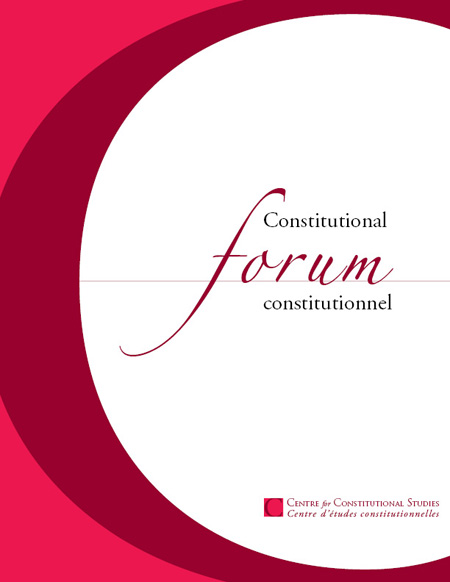The Governor General’s Decision to Prorogue Parliament: A Chronology & Assessment
DOI:
https://doi.org/10.21991/C9HM2KAbstract
We are fortunate that real crises are few and far between in Canadian politics. We have a fundamentally stable system of government, and most political leaders both understand and play by the rules most of the time. As a result, it is something of a shock when a real crisis erupts and fundamental differences unfold over basic constitutional rules. Canada’s parliamentary system has been under increasing strain for several years, but matters came to a head in late 2008. While Governor General Michaëlle Jean’s controversial decision to grant Prime Minister Stephen Harper’s request to prorogue Parlia- ment was the high point of this crisis, there is so much more about this episode that needs to be understood. And it is crucial for us to really understand this affair because the ramifications of the 2008 crisis are profound and enduring. One reason the events erupted so quickly into a crisis is that they dealt with the unwritten rules of the constitution, which are seldom discussed in depth even at the best of times and, as a re- sult, are subject to misinterpretation and mis- representation in times of conflict. The tension was compounded by the unprecedented nature of much of what transpired. Without clear and easy parallels to similar crises in the past, the public and their advisors in the media were left confused as to what was or was not the proper course of action. Nevertheless, there were clear constitutional principles at play that would have been able to give better direction to the Gover- nor General and the Prime Minister if they had been heeded.
Downloads
Published
Issue
Section
License
Authors who publish with Constitutional Forum constitutionnel grant the journal the right of first publication, and agree to license the work under an Attribution-NonCommercial-NoDerivs (CC BY-NC-ND) that allows others to share the work for non-commercial purposes, with an acknowledgement of the work's authorship and initial publication in this journal, as long as no changes are made to the original work. Please use this format to attribute this work to Constitutional Forum constitutionnel:
"First published as: Title of Article, Contributor, Constitutional Forum constitutionnel Volume/Issue, Copyright © [year], Publisher"





